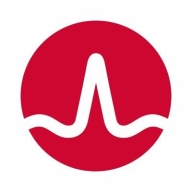

Trend Micro Deep Security and Symantec Data Center Security are both prominent data center protection solutions. Based on the available features and versatility in deployment, Trend Micro Deep Security appears to have an edge over Symantec Data Center Security.
Features: Trend Micro Deep Security offers antivirus, firewall modules, and IDS/IPS along with agentless protection, flexible integration with platforms like VMware and AWS, and comprehensive virtual patching. Symantec Data Center Security provides robust safety measures, a straightforward approach to policy management, and integration ensuring precise access control.
Room for Improvement: Trend Micro Deep Security requires enhancements in its initial setup, reporting features, and support for heterogeneous environments such as Mac systems, along with improving pricing and support for legacy systems. Symantec Data Center Security needs improvements in integration capabilities, reporting, and simplifying policy complexities to minimize false positives.
Ease of Deployment and Customer Service: Trend Micro Deep Security is versatile, used in on-premises, cloud, and hybrid environments, offering excellent technical support although improvements in responsiveness are advised. Symantec Data Center Security excels in support within on-premises and private cloud environments but lacks the deployment versatility of Trend Micro’s cloud capabilities.
Pricing and ROI: Trend Micro Deep Security is generally considered expensive, offering value through its features and flexible licensing, particularly via AWS Marketplace, yet users experience mixed ROI results. Symantec Data Center Security is also priced high compared to alternatives like CrowdStrike, offering efficient protection justifying the investment.
| Product | Market Share (%) |
|---|---|
| Trend Micro Deep Security | 7.3% |
| Symantec Data Center Security | 2.7% |
| Other | 90.0% |

| Company Size | Count |
|---|---|
| Small Business | 5 |
| Midsize Enterprise | 2 |
| Large Enterprise | 5 |
| Company Size | Count |
|---|---|
| Small Business | 36 |
| Midsize Enterprise | 24 |
| Large Enterprise | 46 |
Docker containers make it easy to develop, deploy, and deliver applications where containers can be deployed and brought down in a matter of seconds. This flexibility makes it very useful for DevOps to automate deployment of containers. Symantec Data Center Security: Server Advanced provides agentless Docker container protection that allows you to achieve the performance benefits of Docker without sacrificing security. Full application control enables administrator privilege de-escalation, patch mitigation, and protection against zero day threats in today's heterogeneous data centers.
Trend Micro Deep Security is a comprehensive solution for endpoint security and server protection, which prevents ransomware attacks and unauthorized access attempts. Its valuable features include tracing back attacks, antivirus protection, endpoint detection and response, firewall-based solution, threat detection, predictive machine learning and AI monitoring, VPM, virtualization, and sandboxing.
The solution is easy to use, scalable, stable, and reliable, with good technical support. It has helped organizations perform well against malware and vulnerabilities, provide patching from the Protection Cloud, and improve their security posture.
Trend Micro Deep Security Features
Trend Micro Deep Security has many valuable key features. Some of the most useful ones include:
Reviews from Real Users
Trend Micro Deep Security stands out among its competitors for a number of reasons. Two major ones are its robust data and loss prevention feature and its patch management, which saves users money. PeerSpot users take note of the advantages of these features in their reviews:
One PeerSpot reviewer, a Senior Security Advisor at a healthcare company, writes, “DLP, Data Loss Prevention, and the complexity of how we manage the console and how this client, or this tool, will notify us when there is something going wrong within the server and endpoint, is good.”
Nadeem S., CEO at Haniya Technologies, notes of the solution, “Patch management is most valuable. The major selling point of Deep Security is that it is based on the cloud. Deep Security is for the servers and databases of data centers, and generally, for patch management, you have to shut down the machines, and then you have to restart them. So, they need shutdown time, which is a cost.”
We monitor all Cloud and Data Center Security reviews to prevent fraudulent reviews and keep review quality high. We do not post reviews by company employees or direct competitors. We validate each review for authenticity via cross-reference with LinkedIn, and personal follow-up with the reviewer when necessary.